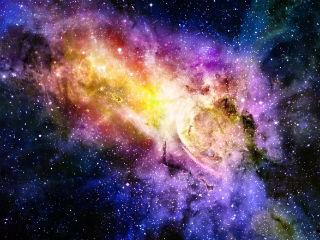The history of humankind is often told as the epic rise and fall of great empires, clashes of civilizations and epoch-defining conflicts

Science is universal and unifying. An apple falls in the same way whether it falls in a 17th-century English garden, inspiring Isaac Newton to develop his laws of universal gravitation; or whether it falls anywhere on earth at any time in history. It is this universality, coupled with a love for knowledge and understanding shared by all humanity, that gives science its power to transcend cultural and other differences.
But another narrative is possible: a narrative in which human progress is chronicled as a smooth and continuous passage towards betterment for all. This is the narrative of ideas, and in particular, of scientific ideas.
Science is universal and unifying. An apple falls in the same way whether it falls in a 17th-century English garden, inspiring Isaac Newton to develop his laws of universal gravitation; or whether it falls anywhere on earth at any time in history. It is this universality, coupled with a love for knowledge and understanding shared by all humanity, that gives science its power to transcend cultural and other differences.
Many of the ideas that have done much to shape the modern world arose long ago in ancient Greece. It is to the Greeks that we owe the concept of atomism, developed in the early 5th century BC and so important in my own field of particle physics. And it is to scholars like Plato and Aristotle that we owe much of the philosophical basis for scientific reasoning.
If we fast-forward to the early Middle Ages, we find that the development of ideas has passed to the Middle East while Europe languishes in a period punctuated by war. It was great scholars from the Middle East that gave us concepts such as algebra, and through translation ensured that the knowledge of the ancient Greeks was not lost. As Europe emerged from the Middle Ages, Middle Eastern contributions to the development of ideas provided a basis for a scientific renaissance in Europe.
Ideas flow between cultures over time, each adding to the sum of human knowledge, and each leading to improvements in quality of life for all of us. While cultures may clash, scientific knowledge moves ever forward.
In post-war Europe in the 1940s, the notion of science as a universal and unifying value, transcending boundaries of all kinds, was put forward by a small group of visionary scientists and diplomats as a way to provide a peaceful future for the continent. As a result, the European Organization for Nuclear Research, CERN, was founded in Geneva in 1954. Designed to provide a centre of excellence for fundamental research in physics in Europe, CERN also had a second mission: to foster peaceful collaboration between nations that had recently been at war.
CERN’s founding convention is a work of genius. Deceptively simple, it provides a robust, stable and flexible framework for international collaboration. In the more than 60 years of CERN’s existence, it has been put to the test on many occasions and has been successfully adopted by other scientific organizations. The CERN model for international collaboration is all about recognizing the strength of diversity, the power of sharing, and the benefits that accrue when neighbours work together to achieve common goals.
The net result of all this is that CERN has thrived and has established itself as the foremost institute in the world for research in particle physics. It has been a magnet for scientific talent from around the world. From the original 12 founding member states, it has grown to 22 members today, along with eight associate members, while almost 17,000 scientists of over 100 nationalities come here to carry out their research.
In the 1960s, CERN collaborated with both the USA and the USSR, with the somewhat surprising result that the laboratory played a small but important cameo role as strategic arms limitation talks got underway in Geneva in the 1970s. CERN provided a neutral ground. The CERN model has also proven itself to work in a field in which timescales for the realization of projects are long and continuity is essential. Perhaps more importantly, the CERN model is a template for cooperation in a fractured world.
Just as science was deployed as a vehicle for peace through CERN in 1940s Europe, the same idea is today being applied in the Middle East. The main difference is that while the protagonists of WWII had laid down their arms before CERN came into being, many of the partners on the SESAME project are still in a state of conflict.
SESAME is a laboratory hosted by Jordan with Cyprus, Egypt, Iran, Israel, Jordan, the Palestinian Authority and Pakistan as members. Despite the differences between its members, the ideal of renewed scientific cooperation in the Middle East has endured for more than 20 years since the notion of a CERN for the region was first aired. The laboratory has persevered and produced its first scientific results at the end of 2017.
Science provides a basis for progress and mutual understanding, but it cannot repair a fractured world on its own. Society as a whole can learn from the way science works. As we take steps into an uncertain future, of this we can be sure: whatever we do, science knows no boundaries, and there will always be people ready to reach out across borders to further the sum of human knowledge for the benefit of all. Let’s make sure that the next chapter in human history is based on the narrative of ideas and not the narrative of conflict.




 By: N. Peter Kramer
By: N. Peter Kramer
